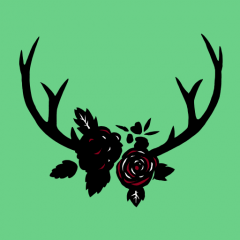Average reading time: 4-5 minutes
Word count: 777
Last August, I wrote about how my view and aspirations for “home” are affected by being aromantic and an immigrant. With this month’s Carnival of Aros on “House and Home“, it’s a good time to reflect on this again.
Since last year, I have moved and am in the process of planning to move yet again in a couple of months, so home is definitely on my mind. As I had written earlier, being aromantic (and an immigrant) impacts my ideas and aspirations for home and my journey on finding home. For a while, I had struggled with finding what I wanted, but recently, something that I was starting to think was nearly impossible happened. A close friend of mine, who is also the only aspec person I know in real life, agreed to living with me! While we won’t exactly have a partnership, we do plan on cohabitating and sharing our lives together long-term. I lived on my own for a while, and during that time, I realized that sharing is what makes something a “home” to me. We haven’t started living together yet, but I feel a lot more settled and content knowing that this is in my near future. I will be able to find home.
This will also be the first time that I get to properly plan my own housing, and I’m looking forward to now be able to pick out my own furniture, household items, and so forth. With my aromanticism and my introvertedness/low social energy, having my own space and opportunity for solitude are important for my well-being and affect my living preferences. For example, I’ll definitely be needing my own bedroom. I also am not a fan of the open floor plan haha. Sometimes I want to be able to go about my daily activities without being perceived.
My idea of home is also influenced by my Latine upbringing, in which it’s more common for a household to include extended family and there is more of a family-centric culture (familism). I can’t deny that family is important to me. My aromanticism impacts my view on what a family is, though, as it does for many other aros. The “found family” trope is a popular one amongst us aros. This combination of my aro identity and cultural background in turn also shapes my ideal living situation.
While I would need my own space, I’d also love to live with a group of friends or live in the same neighborhood as them. In a way, this follows an extended family concept as this would include the partners and any potential children of my friends. In my dream world, we’d live on the same plot of land or in a big house with our own living spaces as well communal spaces. That way we can have our privacy and space while being close to each other, enabling us to share not only our daily lives but also food, supplies, and so forth.
Many aros, including myself, have experienced how the current housing system in many places limits the availability of housing options. It’s an issue not only limited to aromanticism and ties into singlism as well, but housing is a prominent concern within the aro community. While I was living alone, I was limited by my income (sometimes I could afford the monthly rental but many rental spaces require a minimum income, which I often couldn’t meet). Now that I’ll be looking for a place with a friend, I have some more options, but there are many places that have “house sharing” restrictions. It’s very possible that my friend and I would have to pretend to be a romantic couple in order to get housing because two friends living together would be considered “house sharing”. This also restricts any future of sharing housing with more friends, so buying a home would be my only option to pursue that, which is nearly impossible at the moment.
Access to housing is a human right that affects everyone, but I think this is also an issue important for aromantic activism and advocacy. I also think that an aromantic praxis could be useful in expanding options to accommodate a greater diversity of living situations. Considering that many aros don’t have partners, we’re often having to look for other sources of support. I’m interested in how engaging in caring relationships outside of the romantic couple and nuclear family could extend the idea of what a household is and how this could impact how we design houses, apartments, and other living spaces. Perhaps one day we’ll get to see aro activism having a substantial impact on housing policy!

